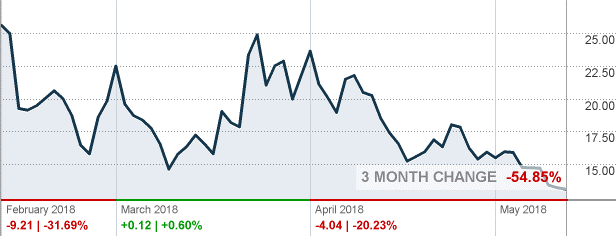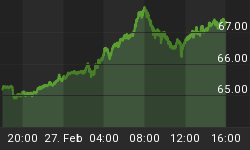''There's no doubt in my mind that the S&P 500 will do better than the great majority of professional managers achieve for their clients after fees" …
Hedge funds, famous for their chronic underperformance relative to passively managed index funds, have managed to put up a rare show after beating the market for the first time in a decade.
This year through April, the $3.2-trillion hedge fund industry posted a 0.4-percent gain vs. -0.4 percent return by the S&P 500, thanks mainly to strong performance by healthcare, technology and energy hedge funds.
That's according to data by HFRI Indices, a broad basket of hedge fund indexes designed to track a wide range of hedge fund categories including equity funds, macro, regional, event-driven and other classes of funds.
Hedge fund indexes that track healthcare, technology, energy and basic materials have been the best-performing after besting the S&P 500.
Against their ETF peers, however, these industry hedge indices have been a mixed bag, with leading technology and energy & basic materials ETFs outperforming their hedge fund cousins, while healthcare underperformed.
The million-dollar question: was this due to skills, luck or a mere fluke? Can hedge funds continue outperforming the market over the long-term?
Hedge Fund's Losing Record
The quote above is by Warren Buffett shortly after winning a bet against a hedge fund manager in 2017.
In 2007, just prior the financial crisis, Warren Buffett famously wagered $1 million against Ted Seides that the market would trounce the average hedge fund manager over the next decade.
Ten years later, Buffett won the bet by a mile after an 85.4-percent rally by the Vanguard Admiral Shares S&P 500 Index Fund (VTSAX) vs. 22-percent return against a basket of five hedge funds, whose identities were not disclosed for obvious reasons. VTSAX is a passive index fund.
Buffett, 87, declined a second 10-year bet on grounds that he's not sure whether he'll still be around when the wager is decided.
Despite losing to hedge funds so far this year, Buffett might still go on to win in the long run.
Numerous studies have shown that index funds manage to beat actively managed funds more often than not.
More than 80 percent of equity hedge funds in the U.S., Europe and emerging markets have underperformed their benchmarks over the past decades. Another one discovered that only five percent of hedge fund managers that top the market over a three-year stretch are able to replicate the feat over the subsequent three-year period.
The odds are therefore stacked against hedge funds, and the current outlook is decidedly not in their favor.
The markets have been rallying in May, with the S&P 500, Dow Jones and Nasdaq Composite crossing over from the red to the green. According to HFR, hedge funds have been able to trounce the market due to three key factors:
• Higher volatility
• Rising energy prices
• Carefully placed bets in the bonds market
Of the three, only #3 is in the hands of hedge funds while the other two are a toss-up. Related: Bitcoin Falls After Failing To Break Key Resistance
First off, volatility in the markets has lately been falling sharply, a negative for hedge funds:
CBOE MKT VOLATILITY IDX (VIX) 3-Month Change

(Click to enlarge)
Source: CNN Money
...while oil prices continue climbing, a positive:
WTI Price

Source: Nasdaq
So we can only hope that these money managers have the right skills to continue impressing.
Food for thought: Nobel laureate Eugene Fama and Kenneth French claim that only 2 percent of fund managers possess a skill level that is statistically significant.
By Charles Benavidez for Safehaven.com
More Top Reads From Safehaven.com:
















